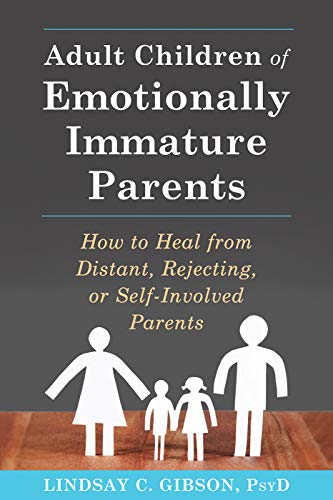Title: Adult Children of Emotionally Immature Parents: How to Heal from Distant, Rejecting, or Self-Involved Parents
Author: Lindsay C. Gibson PsyD
Adult Children of Emotionally Immature Parents describes how emotionally immature parents negatively affect their children, especially children who are emotionally sensitive, and shows you how to heal yourself from the pain and confusion that come from having a parent who refuses emotional intimacy. Clinical Psychologist Lindsay Gibson exposes the destructive nature of parents who are emotionally immature or unavailable.
By focusing on your own self-development, you can get on the road to freedom from emotionally immature relationships
“People who engage in self-discovery and emotional development get to have a second life—one that was unimaginable as long as they remained caught in old family roles and wishful fantasies. You really do get to start over when you open to a new consciousness of who you are and what’s been going on in your life. As one person said, “I now know exactly who I am. Others aren’t going to change, but I can change.”
Favourite Takeaways – Adult Children of Emotionally Immature Parents
